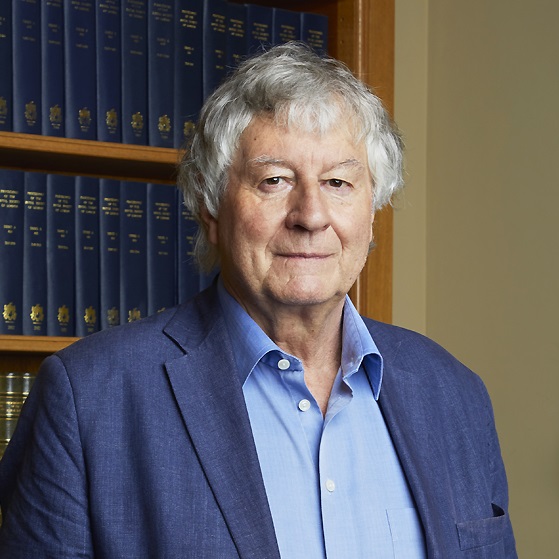Royal Society President Sir Adrian Smith writes on why a long-term vision for science is needed in turbulent times.

Serious science needs time. Time to think, to build, to be ambitious and to experiment without fear of failure. The rapid production of vaccines during the Covid-19 pandemic built on years of prior fundamental biological research. The optical fibres that underpin our modern communications system rely on basic physics carried out in the 1960s. And, as the UK seeks to lead the pack in the new net-zero economy, it draws on decades of research in the development of materials and alloys.
Science does not need certainty to thrive, but it does need baseline stability. That distinction matters. Climate change, conflict and technology are driving rapid change and deep uncertainty. Science cannot eliminate that, but it can help societies navigate it. In a world of accelerating change, science must be empowered to respond flexibly, creatively, and fast. That responsiveness depends on stable foundations: predictable investment, clear principles, and an environment where collaboration and risk-taking are possible. In the UK we are doing well, but we could be doing so much better.
Instead of offering steady support, our system shifts course repeatedly: on funding, priorities, even on the value it places on research itself. A stark example is the sudden and severe cuts to the UK’s Official Development Assistance (ODA) funding in 2021, which led to the termination or curtailment of hundreds of international research collaborations. These were programmes that had taken years to build. They focused on critical issues such as health, agriculture, and climate resilience. The damage was not only financial; it eroded trust and sent a potential signal that the UK could no longer be relied upon as a consistent partner in global science.
Today, the US—the world’s leading scientific powerhouse—is taking an axe to large swathes of its research funding. Scientific careers are being terminated, research programmes are being scrapped, knowledge is being lost. That will have an impact on us all.
That is why the interim report of the Royal Society’s Science 2040 programme arrives at a critical moment. It seeks to address the current moment not with alarmism, but with a call for structural clarity. It calls for a ten-year investment framework to create the space and confidence investors and researchers need to plan, to build, and to adapt.
The need is urgent. The UK’s research base is being asked to deliver long-term value on short-term support. Many UK universities are in a financially unstable position, with over three-quarters now forecasting deficits, driven by rising costs, frozen domestic fees, and over-reliance on uncertain international income. Research institutes face similar pressures, without the ability to cross-subsidise from fees. When institutions that carry out research are put at risk, it forces cuts to high-skilled staff, delayed investment in necessary infrastructure, and a dramatic narrowing of ambitions. The national science effort suffers.
Successive governments have expressed support for long-term investment in science. The Science and Technology Framework set out an ambition for the UK to become a science and technology superpower by 2030. But while the direction of travel is broadly welcome, delivery has been fragmented, and we still invest a smaller share of GDP on research than many of our competitors. The system remains shaped more by short-term decisions than by sustained strategic intent.
A long-term investment framework won’t eliminate difficult choices, but it will make it possible to face them directly. One such trade-off is already coming into view: whether to continue stretching limited funding thinly across the system, or to fund fewer projects at full economic cost. Another is how to balance geographic concentration of excellence with the goal of supporting a broader, more diverse institutional research base across the UK. These are not easy questions. But they are better addressed through deliberate, long-range planning than through drift, short-term incentives, or attrition by stealth.
In light of what is happening in the US, international collaboration becomes even more vital. The UK’s strength has been derived from its openness: its ability to attract global expertise, foster interdisciplinary research, and contribute to shared challenges. But current immigration policies potentially make that harder, deterring talent and slowing collaboration on challenges like pandemics, decarbonisation, and AI.
The Society’s interim report offers a pragmatic, constructive path forward. It sets out how we might support early-career researchers, strengthen the research workforce, and build the physical and digital infrastructure that will carry us into 2040. But more than that, it calls for a national choice: to treat science not as a short-term cost, but as a long-term investment.
We cannot control the turbulence ahead. But we can try to ensure that our science system is built to be resilient. That is the choice before us.

